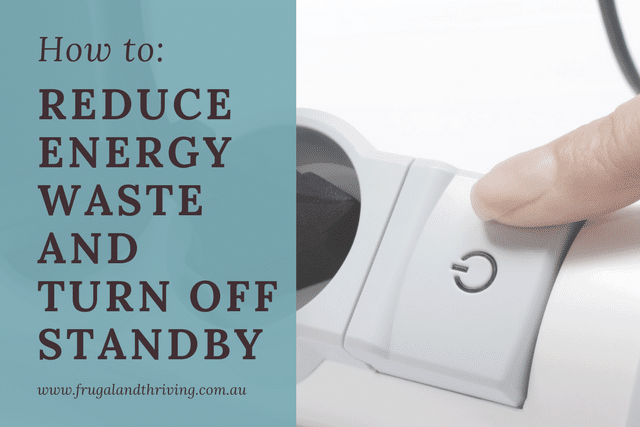Say No to Waste and Turn Off Standby Power
This website may earn commissions from purchases made through links in this post.
This article is part of a series on saving money on electricity.

This is the last article in the series on saving money on electricity around the home.
The final area of energy use to target is standby power.
While standby power uses the least amount of electricity in the home, turning off standby power is the easiest way to save money.
It’s simply a matter of flicking a switch.
Standby power accounts for around 3% to 10% of overall household electricity usage.
Assuming the average Australian daily usage of 20kWh, turning off standby power could reduce your power consumption by between 219kWh and 730kWh per year.
At 26c per kilowatt hour, that’s a saving of between $57 a year and $190 a year.
That’s easy money to keep in your pocket.
Electronics that use standby power include:
- TVs
- DVD players
- Gaming machines
- Audio equipment
- Pay TV / satellite boxes
- Computers and laptops
- Peripheral equipment (printers, speakers etc.)
- Mobile phones / chargers
- Washing Machine
- Dryer
- Dishwasher
- Microwave
- Other small appliances
The rule for saving money on standby power is simple:
If it’s not in use, turn it off at the power point on the wall.
If you have multiple items that you use at the same time (like the TV and DVD player for instance), plug these into a power board. That way you only have to flick one switch to turn off multiple electronics at once.
On the other hand, it may be better to plug less frequently used electronics into a separate socket so that they needn’t even be switched on when you’re using something else.
By turning off electronics and appliances that have standby power when you’re not using them, you’re stopping the waste.
Because what’s the point of paying for electricity if you’re not using it?
I hope you’ve found the series on saving electricity around the home useful and that you’ve put some of the suggestions into action if you haven’t all ready.
Because saving electricity doesn’t just benefit your hip pocket. It reduces the consumption of our limited natural resources and reduces greenhouse gas emissions as well.
That makes it a win-win all round.






